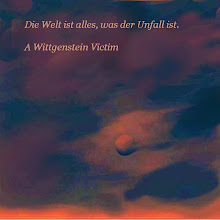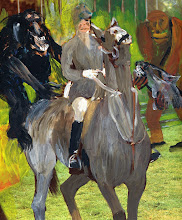1. The Finite Mass – The Decomposing (Zerfallende) Object
2. “The Trinitarian Formula” – Power, Force, Resistance
1. The Finite Mass – The Decomposing (Zerfallende) Object
Nowadays the mass embodies the will to power. A ‘superman’ (Übermensch) only exists, if he can ceaselessly prove his kinship with the mass. As soon as he distances himself from them, his downfall starts. Inevitably this is also the downfall of the mass. That can all take a while. With the will to power of the mass arises a new concept of power– neither divine nor mythical nor even political – but finite. From Nietzsche one finds out much about will to power, whilst the emphasis is always on ‘will’. He divulges little about the nature of this power itself. For instance in “Human, All Too Human I” in section 460. “The Great Man of the Mass” he writes: “The mass must have the impression, that a powerful, impregnable will power is there; at least it must appear to be there. Everyman admires a strong will, because no one has one and everyman says to himself, that, if he had one, then for him and his egoism there could be no more limit.” (“Die Masse muss den Eindruck haben, dass eine mächtige, ja unbezwingliche Willenskraft da sei; mindestens muss sie da zu sein scheinen. Den starken Willen bewundert Jedermann, weil Niemand ihn hat und Jedermann sich sagt, dass, wenn er ihn hätte, es für ihn und seinen Egoismus keine Gränze mehr gäbe.”) Power seems to be closely related here to egoism – especially in its limitation. An indirect symbiosis exists between the strong will of the great man and the bounded egoism of the mass. The strong will of the great man is a surrogate limitlessness – the mass hopes from it the abolition of the limits of its own egoism.
But this in itself does not yet produce an unlimited power – power is always constrained by the familiar appetites of the mass, the restricted (finite) ways in which the mass experiences its desires. This is a finite power.
Such a mass, as actuality and potentiality (possibility), exists only since the storm on the Bastille. It is not a question of quantity. One person can be a mass for himself – as Tibull says, in solis sis tibi turba locis (In your solitude be your own popular unrest, Tibull, Eleg., IV, XIII, 12).
Threatening is when the mass pursues you like a Doppelgänger, trying to keep you from your projects and plans as if they were his own – as it happens in Kafka’s story “Entlarvung eines Bauernfängers” (Unmasking of a Swindler): “They placed themselves in front of us, as wide as they could; tried to hold us back from there towards where we were headed; prepared for us a dwelling in their own breast as an ersatz, and when the concentrated feeling in us finally reared up (rebelled), they took it as an embrace (…)” (“Sie stellten sich vor uns hin, so breit sie konnten; suchten uns abzuhalten von dort, wohin wir strebten; bereiteten uns zum Ersatz eine Wohnung in ihrer eigenen Brust, und bäumte sich endlich das gesammelte Gefühl in uns auf, nahmen sie es als Umarmung (...)”)
The mass feels itself (and no one contradicts it in this feeling) to be the highest value. To spread its hegemony over the whole world is the wish of the mass. The past empires were based on professional armies, rulers and their courts. The mass did not exist – Francis Bacon called the proto-mass “commons”, from which a ruler had little to fear with a few exceptions: “(…) there is little danger from them, except it be where they have great and potent heads; or where you meddle with the point of religion, or their customs, or means of life.” (“Of Empire” in Bacon’s Essays, New York, 1909, p. 160)
The recurring uprisings of the past such as the peasant wars were mostly instigated by professional groups. They had specific demands. Cromwell’s Army represented an early unusual hybrid of mass and professional association. The “New Model Army” drew its members from an amorphous population of “masterless men”. They transformed themselves in the course of the English Revolution into a regular force only to decompose back into nothingness again after the failure of the revolution. Lostness in the double sense – defeat and disappearance - masks the finitude of the army-mass. For Heidegger ‘lostness’ is a mode only of the singular Dasein – ‘foundness’ or what he calls destiny (Schicksal) takes place in the community or Volksgemeinschaft – but historically absolute lostness is only of the community – when a community is lost it becomes extinct.
Similarly, Badiou’s key concept of “fidelity to the event” (for instance to the event of the Revolution of 1917) hides a secret acknowledgement of finitude. In Badiou’s presentation the “fidelity” of a “subject” in the “situation” wavers continuously between finitude and infinitude. However, if the event were not finite, fidelity would be superfluous. His concept of “fidelity” is a disguised finitude. He thus dissolves any specific fidelity to an historical event into the fidelity of the finite subject-of-the event to itself: “(…)let’s be faithful to the event that we are.” (Being and Event, translated by Oliver Feltham, London, 2007, p. 236)
Badiou’s “fidelity to the event” is a quasi-mathematical transposition of Proust’s “à la recherche du temps perdu” (In Search of Lost Time) – whereby “lost” should be understood as equal to “finite”.
The mass itself does not know what it wants. It only wants to continue to exist (as Canetti says) in the feeling of unconditional ruling and desiring. Still, because the mass is finite, but the will of the mass to persist in its being is infinite, the mass experiences its decaying provisional nature as an enigma. The decaying mass moves from its ecstatic fusional ‘oneness’ back into its atomized particularity (the contingent many) – painfully recognizing if only for that brief moment of transition that ‘community’ is not “being-in-common” (Nancy) but a nihilistic “nothing-in-common” (Esposito). Community is not dwelling or shelter – it is abandonment – to the law and language (so-called ‘form of life’).
Just as in earlier times, the king was the figure who had much to fear and little to desire, today the mass finds itself in this royal condition of an unclear and wilting consciousness. The leader who rises up out of their ranks and who will be carried by them, must have the professional and full-time ability to protect the finite mass feeling from its falling apart. In this sense, according to Badiou’s system, such a leader would be the only faithful subject of the event of the mass. Eisenstein captures the electrifying galvanising effect of the leader in his commemorative film of the 1917 Revolution “October”. In the scene “At the Finland Station” the anxious mass waiting for the train presses together in darkness at the train station until someone shouts the redemptive word “It’s Him!” – all faces beam and a huge outpouring of delight banishes all doubts – Lenin arrives on the scene.
2. “The Trinitarian Formula” – Power, Force, Resistance
Power is often without force. It must not develop force, it is already beyond force. The force, which power first expended to become power, disappears into power itself. It will never again need the same expenditure of force as it did to first become power. Even when power seems to grow, it does so with a decreasing exercise of force. That explains the phenomenon, that powerful and ultra-powerful configurations are so easily overthrown.
Resistance on the other hand is pure expenditure of force – out of the point of powerlessness. Resistance requires an extraordinary quantum of will or will-power. Therefore the concept – will to power – is actually meaningless, objectless. When one has power, one does not need will. Only when you have no power, that means, when existing power systemically hinders you from having power – then you need will – not to power – but to resistance. Power is related to inertia. Power is not a dynamic concept. That is why all the directors in Kafka’s Castle are so tired.
There is no resistance in the world of the accident valet – because it is a world of pure power. Similar to the airless space of a vacuum – airplanes fly best there, because air resistance does not impede them. In general, the world of pure power is a world without any hindrance.
(Note: Author’s expanded translation of “Wille zur Endlichkeit” published in Noir Hybriden, 18th February 2010)

















.jpg)














No comments:
Post a Comment